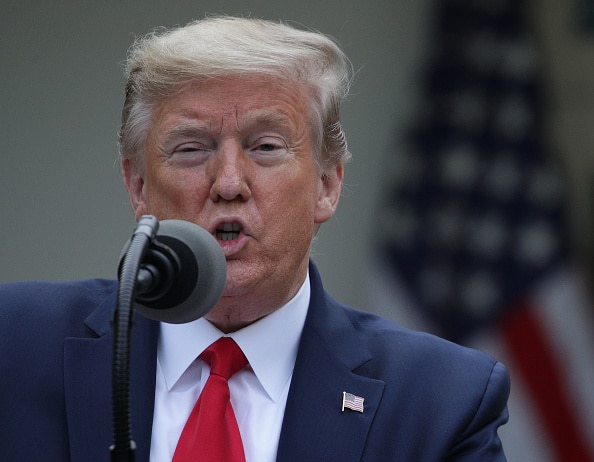President Donald Trump’s announcement that the U.S.—the largest sponsor of the World Health Organization—will halt payments to the body in the midst of a pandemic because of its “mismanagement” of the coronavirus crisis has been slammed by the U.N., global leaders and Bill Gates as “dangerous”.
KEY FACTS
- Trump announced he would hold payments in the midst of the coronavirus crisis, while a “review” is carried out to assess what he said was the WHO “severely mismanaging and covering up the spread of the coronavirus.”
- In response, U.N. Secretary-General Antonio Guterres said in a statement that now is “not the time to reduce the resources for the operations of the World Health Organization or any other humanitarian organization in the fight against the virus.”
- Microsoft founder Bill Gates, whose philanthropic Gates Foundation is one of the WHO’s biggest voluntary donors, criticised the move as being “as dangerous as its sounds…the world needs WHO now more than ever.”
- House speaker Nancy Pelosi blamed Trump “ignoring warnings” about the pandemic for causing “unnecessary deaths.”
- She tweeted: “Now more than ever, we need the truth. And the truth is that Donald Trump dismantled the infrastructure handed to him which was meant to plan for and overcome a pandemic, resulting in unnecessary deaths and economic disaster.”
- World leaders have urged Trump to rethink the decision, with China calling for the U.S. to fulfill its obligations, Germany and New Zealand calling for unity, while Australia’s Prime Minister Scott Morrison said the WHO was not immune from criticism.
Additional info: Trump’s decision comes as nearly 2 million people to date have contracted the coronavirus, 600,000 of them in the U.S., while 126,000 people have died.
Crucial comment: Guterres added: “Now is the time for unity and for the international community to work together in solidarity to stop this virus and its shattering consequences.”
The Geneva-headquartered body is the part of the U.N. in charge of global public health and has coordinated the global response to the COVID-19 pandemic.
Big number: $400 million. That’s how much the U.S. contributed to the WHO budget in 2018-2019, the BBC reports. The U.S. makes up about 15% of payments to the WHO and is the largest financial contributor. The WHO is funded through membership payments from its 194 member states, as well as voluntary contributions.
Key background: Trump has threatened to pull out from funding the WHO in recent weeks, despite the U.S. becoming the centre of the global pandemic with the most cases and deaths. Trump accuses the body of being China-centric, declaring a pandemic late, and “opposing travel restrictions to China,” he said on Tuesday. But the WHO has also suggested that the U.S. largely failed to acknowledge the severity of the disease and its potential. The tension between the U.S. and the WHO is just one example of the struggle to implement a global response to the pandemic as individual states grapple with it in their own, unique and sometimes contradictory ways.
Tangent: Donald Trump is not the first U.S. President to defund a U.N. body but this tactic of withholding funds, or withdrawal, has become a hallmark of his administration. The U.S. will cease to be a member of the Paris Climate Agreement this year after Trump formally pulled the U.S. out in 2019, and he has also pulled out of the Iran Nuclear Deal and the UN Human Rights Council, among other agreements.
–Isabel Togoh, Forbes Staff, Business
